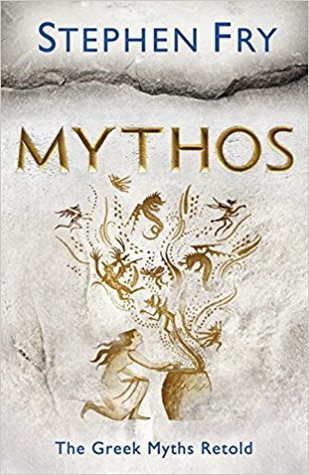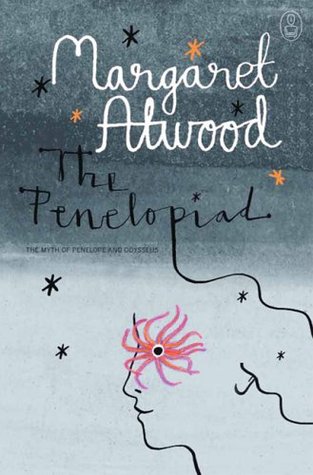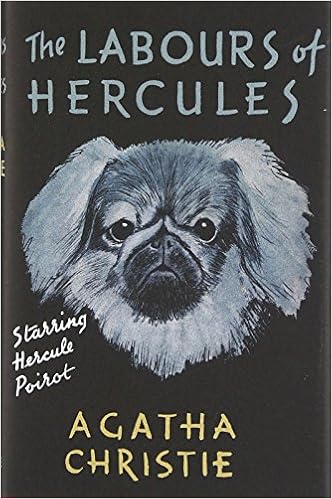I love doing Six Degrees of Separation, a monthly link-up hosted by Kate at Books Are My Favourite and Best. Each month a book is chosen as a starting point and linked to six other books to form a chain. A book doesn’t need to be connected to all the other books on the list, only to the one next to it in the chain.
This month the chain begins with The Beauty Myth by Naomi Wolf.

This book is described on Goodreads as the bestselling classic that redefined our view of the relationship between beauty and female identity. I haven’t read it and most probably won’t read it. So the first link in my chain is to a book about a mythical woman known for her beauty and for being the cause of the fall of Troy. It is

Helen of Troy by Margaret George, a modern retelling of the ancient myth of Helen, Paris and the Trojan War. Coincidentally we’ve been watching the BBC’s Troy: Fall of a City I’m never sure I really want to watch film or TV adaptations and yet I find myself drawn to them. This leads me on to

Mythos: The Greek Myths Retold by Stephen Fry, although he hasn’t included the details of the Trojan War – he begins at the beginning where the poets captured the stories told by the Greeks of their gods, monsters and heroes – but doesn’t end at the end.
But Fry does include the story of King Tantalus, who was punished for his crimes by being made to stand in a pool of water beneath a fruit tree with low branches, with the fruit ever eluding his grasp, and the water always receding before he could take a drink. A modern re-working of the story is in my next chain link:
![Tantalus: the sculptor's story by [Westwell, Jane]](https://images-eu.ssl-images-amazon.com/images/I/51PuH4TkwQL.jpg)
Jane Westwell’s novel, Tantalus is the story of two lovers are separated not by barriers of race, class or creed, but by something much more devastating – by time. They can see and can talk to each other but can never touch. Theirs is an impossible love as each is trapped in their own time and space.
Another modern version of one of the Greek myths is that of Penelope and Odysseus in

Margaret Atwood’s The Penelopiad: The Myth of Penelope and Odysseus, described by Mary Beard in the Guardian as ‘exploring the very nature of mythic story-telling.’ This is one of the Canongate Myth series of books – retelling Homer’s account in the Odyssey. It also links to Helen of Troy as she is Penelope’s cousin. Atwood’s version explores what Penelope was really up to whilst Odysseus was away for twenty years.
My next link is to another book in the Canongate series:

Weight: the Myth of Atlas and Heracles by Jeanette Winterson. Atlas, the guardian of the Garden of Hesperides and its golden apples, leads a rebellion against the Olympian gods and incurs divine wrath. For this the gods force him to bear the weight of the earth and the heavens for eternity. When Heracles, for one of his twelve labours, seeks to steal the golden apples he offers to shoulder the world temporarily if Atlas will bring him the fruit.
This brings me to yet another re-working of the Greek myths, about another Heracles – also known as Hercules, and his twelve labours:

The Labours of Hercules by Agatha Christie is a collection of 12 short stories featuring Hercule Poirot, first published in 1947. The stories were all first published in periodicals between 1939 and 1947.
The labours of Hercules were set for the classical Greek hero by King Eurystheus of Tiryns as a penance. On completing them he was rewarded with immortality. Hercule Poirot is a very different figure from the Greek hero, Hercules, but there is one way in which they are alike – Christie writes: ‘Both of them, undoubtedly, had been instrumental in ridding the world of certain pests … Each of them could be described as a benefactor to the Society he lived in … ‘
Poirot has set himself the task of solving twelve cases corresponding to the Twelve Labours of Hercules, including The Apples of the Hesperides, in which Poirot’s apples are emeralds on a tree around which a dragon is coiled, on a missing Italian renaissance goblet. It seems that Poirot may have to go on a world tour to investigate locations in five different parts of the globe in order to retrieve the goblet.
My chain this month has the same link running through the book – that of myths. From the modern obsession with beauty back to ancient myths and their modern versions and ending with a collection of short stories of crime fiction based on the Greek myths.
Next month (April 7, 2018), we’ll begin with Arthur Golden’s bestseller, Memoirs of A Geisha.
Love your mythological links! I like the sound of the Margaret George, Helen book
LikeLiked by 1 person
I really must get round to reading Helen of Troy – but it is such a long book!
LikeLike
This is so clever, Margaret, to use mythology to link all of these together. And the books really are different to each other, which makes it all the more clever. Well done!
LikeLiked by 1 person
Thanks, Margot! I liked the idea of one main theme, but using different myths and genres.
LikeLiked by 1 person
Oh, I liked this very much. Mythology all the way through. I did use mythology too, but went the Norse route and then back around. I’ve never seen that Christie cover – funny!
LikeLiked by 1 person
The Christie cover is a bit odd, I thought – it’s to illustrate one of the myths – that of The Nemean Lion. Christie substituted a Pekinese dog for the lion as ‘according to the legend, Pekinese were lions once. And they still have the hearts of lions’. 🙂
LikeLike
Yes, I agree – very clever, Margaret! Each of these books is new to me despite my having read some of the Canongate Myth series. You’ve included several that interest me. (And we seem to agree on The Beauty Myth: to read or not to read? Life’s too short!)
LikeLiked by 1 person
And there are too many other books I want to read to bother with The Beauty Myth. 🙂
LikeLiked by 1 person
Im struggling with this month’s chain. Love your mythological chain. We were watching Mary Beard last night in the new BBC series called Civilisations. She’s highly knowledgeable but I find her delivery style hard to take in anything but short spurts. She is so intense and excited about everything:)
LikeLiked by 1 person
Mary Beard’s programme is not on here until next Friday – we watched Simon Schama’s on Friday. I like Mary Beard but I do agree that her delivery style is intense – so enthusiastic all the time.
LikeLike
There have been many negative comments about her episodes. Some are just unfair (comments about her hair etc) but many are about her content lacking cohesion.
LikeLike
really cool how you ended up with Agatha Christie: Mine is here: https://wordsandpeace.com/2018/03/03/six-degrees-of-separation-from-beauty-to-truth/
LikeLike
I was pleased to include a crime fiction book in with all the mythology.
LikeLike
It’s funny, I wondered if you would include the Agatha Christie I read a year or two ago and there it was at the end. Excellent links and will follow up on a few later as they sound interesting.
LikeLiked by 1 person
I had no idea where the chain would end – and then remembered AC’s collection of short stories. 🙂
LikeLike
Nice idea to have one link running through the whole chain. I haven’t read any of them but have been tempted by the Stephen Fry – I suspect my willpower will fail at some point soon…
LikeLiked by 2 people
Go on – you know you want to! 😉
LikeLiked by 2 people
Do read it – but be warned it has no contents list and no index, which irritates me. It needs both. Maybe Robert Graves’ book on the Greek Myths would suit me more.
LikeLiked by 2 people
I love the mythological theme running through your chain! I’ve only read the Agatha Christie but I would like to read some of the others, especially The Penelopiad and Helen of Troy. The first link in my chain was a Trojan War book too, but I went in a very different direction after that.
LikeLiked by 1 person
Thanks, Helen. Atwood’s book is good. I haven’t read Helen of Troy – yet – its length has been putting me off.
LikeLike
I’ve enjoyed the ‘mythical’ path some bloggers have taken this month – it’s funny because I didn’t even think of that!
LikeLiked by 1 person
Funny – it was my first thought! 🙂
LikeLike
Like the ‘myths’ connection you took – I didn’t think about it at all, so I admire all those who took that path!
LikeLike
I must come over and see your chain. I like the variety in all the chains.
LikeLike
I love this myth-themed chain, Margaret! It’s a very clever twist and there are many titles here I’ll have to check out.
LikeLike